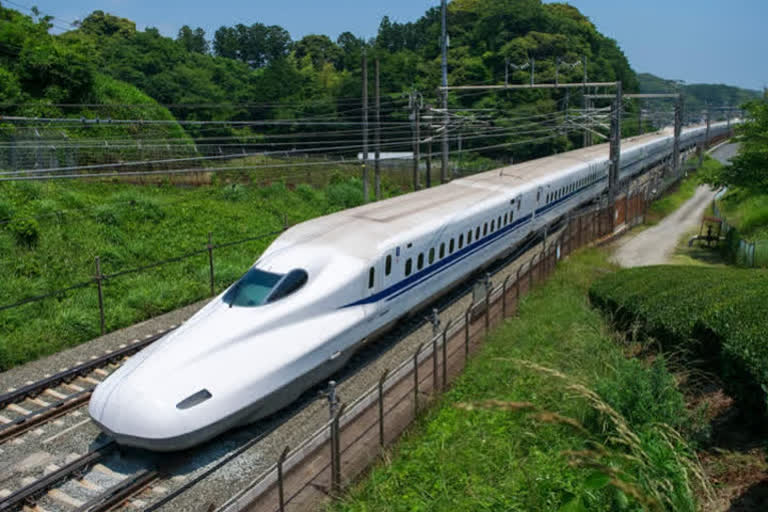Hyderabad: Though Bullet trains are currently operational in about 20 countries across the globe, including Japan, China, and Britain, in India, which has grown to become the fifth-largest economy in the world, the high-speed train is still unheard of. Although the foundation for the first bullet train project in the country was laid three years ago, it has not even been able to overcome problems such as land-acquisition.
In addition, the Centre has come up with another seven new projects. The corridor connecting Mumbai, the financial capital of the country, with Hyderabad, is one of them. While it is gratifying to think of initiating new projects, it is a worrying fact that no progress has been made in the ambitious project.
Japan, the ideal example
Japan was the first country in the world to have launched the bullet train. High-speed train services began in the year 1964 itself, connecting the cities Tokyo and Osaka. The bullet train system is one of the main reasons why Japan has emerged as the third-largest economy after the United States and China.
In spite of Japan's economy plummetting with the onset of World War II, since then, the government and the people have together worked to bring development back on track. Japan embarked on a bullet train project aimed at achieving inclusive growth in the country. This revolutionized the country's business sector and the state of the nation's economy.
Read:Bullet train project may miss 2023 deadline, land acquisition still under process, says Railways
Industries have been able to make efficient use of human resources as travel time has decreased, increasing their time of productivity. The tourism sector also started booming accordingly. Thus, the economy started thriving in Japan.
Having an almost nil-death rate due to train accidents along with an average annual delay of just 20 seconds is by itself a testament to the robustness and the efficiency brought in by the high-speed bullet train system in a country like Japan.
The Modi government had initiated the construction of a 508-kilometre-long bullet train line between Mumbai and Ahmedabad with the help of Japan. In 2017, Prime Minister Modi co-founded the project with the then-Japanese Prime Minister Shinzo Abe. The estimated cost of the project was Rs 1.08 lakh crore, of which 81 per cent was borrowed from Japan. The goal was to make the first bullet train operational by December 2023.
